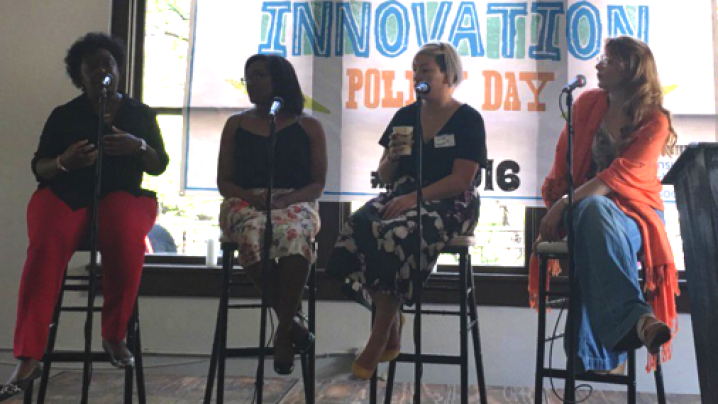[ad_1]

From left: Kimberly Bryant, Adrissha Wimberly, Lisa Lee and Katie McAuliffe at a panel discussion Tuesday at South by Southwest in Austin, Texas.
Sherrell Dorsey/The Root
Scathing diversity reports from major tech companies revealed that women make up less than 30 percent of employees. For minority employees, this number staggers as low as four percent. The culprit? Unconscious bias in an industry largely dominated by white men.
“We need to have transparent discussions on what bias is and own it. Then, we need to get past that bias to a place of acceptance where we need to drive these conversations around diversity and inclusion to actually make change and have every voice at the table,” said Kimberly Bryant, founder of Black Girls CODE at a panel on Tuesday at South by Southwest in Austin, Texas.
As part of a discussion called “Making Our Tech Look More Like Our Country,” Bryant recalled entering college at a time when there was a big push to get women and children of color into Science, Technology, Engineering and Math fields. Her transition to the technology industry after 20-plus years in biotech and pharmaceuticals was met with the reality that, despite great strides, there were still not many women or people of color within the industry.
Similar sentiments were expressed by panelists Lisa Lee, senior diversity manager at Pandora; Adrissha Wimberly, senior adviser for the New York City Mayor’s Office of Tech & Innovation; and moderator Katie McAuliffe, executive director of Digital Liberty.
As a solution to removing the biases that are preventing the tech community from being a true reflection of a diverse society, Lee shared the notion that as diversity managers—a quickly growing role at tech companies—the goal should be to make better people through developing empathy and leadership skills and increasing people’s understanding and curiosity of each other.
“We’ve been living in a system that wants to create hierarchies and we do that amongst ourselves as well,” explained Lee. “We have to disrupt some of those thought processes.”
At Pandora, Lee says they’re actively looking at recruiting and retention and spending a lot more time as part of the ecosystem embedded in the community instead of being just a tech media company that is operating in a vacuum.
“Instead of an employee yacht party, our employees get 40 hours of volunteer time to go out and be in the community.”
The conversation also addressed the issue of intersectionality and its role in fostering greater inclusion within the tech industry.
“My issues as a woman of color are not truncated by issues more focused and narrow that impact women,” explained Bryant. “The next step in inclusion is accepting that we are different. We need to move away from a false binary of inclusion.”
Lee admitted that the conversations around intersectionality are not happening on the same scale as discussions about diversity, but remains optimistic as diversity initiatives at tech companies find ways to celebrate differences while encouraging solidarity among employee cultures.
Both Lee and Bryant pointed to the universal issues affecting everyone, begging the question of how do we develop strong and vibrant communities that include diverse voices?
“Companies and governments should work closer together to advance shared social goals to improve our society,” said Lee. “Cultural change precedes political change, but political change needs to happen to match the culture.”
Sherrell Dorsey is a social-impact storyteller who speaks and writes frequently on the intersections of sustainability, technology and digital inclusion. Follow her on Twitter.
[ad_2]





















